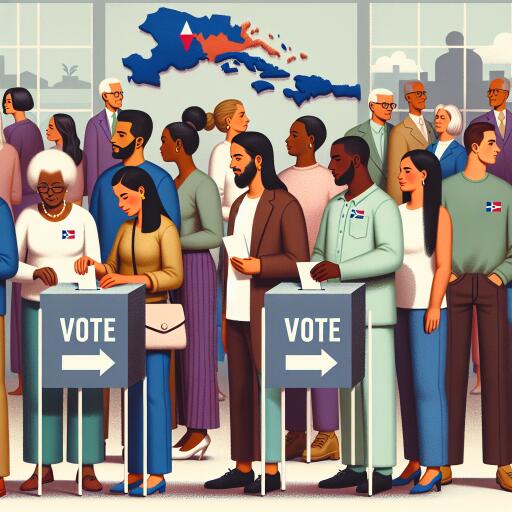Dominicans vote in general elections with eyes on crisis in neighboring Haiti
In the Dominican Republic, voters are making critical decisions in the general elections, with the state of their nation and its relationship with Haiti taking center stage. The polls opened on Sunday, presenting a pivotal moment for the future of the Caribbean country and its approach to the unfolding crisis in Haiti.
At the forefront of the presidential race is incumbent President Luis Abinader, whose approval ratings rank him as one of the most popular leaders across the Americas. A victory above the 50% mark would secure him another term without the need for a second round of voting. On his heels are prominent figures such as former President Leonel Fernández and Mayor Abel Martínez. Alongside choosing a president, Dominicans are also participating in legislative elections.
Abinader’s tenure has been marked by a focus on anti-corruption measures and economic growth, initiatives that have garnered significant support among the country’s estimated 8 million voters. However, a considerable portion of his approval ratings stems from the government’s stringent measures against Haitian migrants and the firm stance on the Dominican Republic’s shared border with Haiti.
“This migratory problem worries me, because we’re seeing a massive migration from our neighbor and it feels like it’s out of control,” expressed Perla Concepción, a 29-year-old secretary. Her concerns mirror those of many Dominicans heading to the polls, with migration being a prevailing issue.
The Dominican Republic’s approach to Haitian migration has hardened, especially in the aftermath of Haiti’s descent into chaos following the assassination of President Jovenel Moïse in 2021. The surge in gang violence has led to increased migratory pressures on the Dominican Republic, prompting the government to construct a barrier along the 250-mile (400-kilometer) border it shares with Haiti. President Abinader has also been vocal in calling for the United Nations to dispatch an international force to stabilize Haiti, asserting that such intervention is urgently needed.
In defiance of calls to establish refugee camps for those fleeing the violence in Haiti, the government has opted for mass deportations, expelling 175,000 Haitians in the last year alone, as per government figures. While these policies enjoy widespread support among the Dominican populace, they have attracted criticism from international human rights organizations. Critics, including Amnesty International, have decried the mass expulsions as racially motivated and in violation of international law. “These collective expulsions are a clear violation of the Dominican Republic’s international obligations and put the lives and rights of these people at risk. Forced returns to Haiti must end,” stated Ana Piquer, Americas director at Amnesty International, in a recent report.
As Dominicans head to the polls, the elections not only shape the political landscape within the country but also signal its stance on humanitarian crises and international obligations. The outcomes of these elections will be closely watched, both domestically and internationally, for their implications on the Caribbean and beyond.
